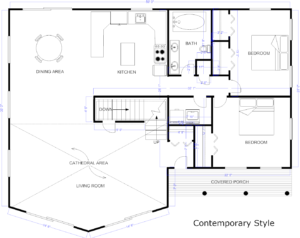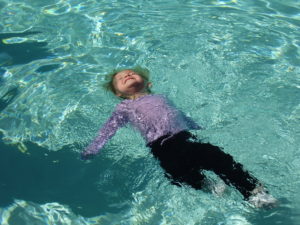What is a Family Plan?

I am so used to creating and planning with the families I support. Whether it be creating birth plans, a plan for your postpartum period, meal plans, returning to work or daycare plans or a plan for company to visit once you are home. Sometimes the importance of planning for the “OTHER” things fall to the bottom of the pile. Have you created your family plan?
In light of September being National Preparedness Month, is your family prepared in case of an emergency? Fire? Falls? Poisoning? Drowning? Abduction? Having children means, you can never be too careful.
With the recent devastation of hurricanes Harvey and Irma and all the wildfires, it got me thinking about the importance of planning and preparing for the little things too. In-home disasters (water line breaks) or emergencies (fire) could happen at any time. This blog will discuss BASIC things for family safety in your home, not dealing with natural disasters!
“Disasters do not plan ahead, however you can make an emergency plan today.” This is a paraphrase of their national motto. Schools, businesses and churches routinely practice drills for the safety of everyone, so why don’t families routinely practice for the “just in case?”
We have so many ways for notification of weather conditions, wars, bombings, even amber alerts via television, radio, phones, storm alerts, social media outlets, etc but would your kids know what to do if a fire started in the house?
Make a family plan, discuss it and practice it. The plan does not have to be long or detailed. Make it fun for the entire family while getting the seriousness of the plan understood. Safety first!
Discuss real life situations that could happen. Make sure kids know their first and last names; phone number and address when possible (age specific)
Questions to address with your family:
-If a fire started in the house, where is the nearest place you would get out? Where would everyone meet up? Do you own a fire extinguisher, where is it kept? How often do you check your smoke detectors? Carbon monoxide detector?
-If you your house lost power in the middle of the night, do you know where candles, matches and flashlights are?
-What would you do if a door were locked or stuck with someone behind it, what would the plan be? How could everyone stay calm?
-If mommy or daddy were to slip in the shower and hit their heads and could not answer you, would you know how to call 911 or go to your neighbors to get help?
-What would you do if someone fell in the pool and did not know how to swim, what would you do first?
-A big heavy car door were to slam shut and you were stuck inside, how would you get out? What could you do to let someone know you are stuck?
-If there was a shooting at school and everyone was running, where is a safe place to go to be reunited? How long do you stay there?
-If you get separated in a public place (grocery store, zoo, mall) what should you do first? Who do you talk to?
-If a stranger asked you to come look at his puppy, what would you do?
-Would you know what to do if a family member started choking?
-If you come around the corner and see a 3 year old drinking from a bottle of Windex, what would your next step be?
Tips to implement the family plan
Print out a blueprint or draw the basic layout of your house. Label every room. Use bright colors or stickers to help everyone see the escape routes. Walk through the house while you explain.
Give every member of your family a role and responsibility (unless they are too little). If you have many family members, partner kids up with each other, so they have a buddy. Always travel with a buddy when possible, there is safety in numbers.
List all important phone numbers-911 and cell numbers AND your home address near the phone or on the refrigerator, make sure your kids know where they are!
Have your kids practice dialing 911 and know when to call and why they would call 911.
Find escape routes from all rooms, two ways if possible.
Practice staying low, crawling on hands and knees to get out (smoke rises).
Briefly discuss (age appropriate) looking for smoke and feeling the door for heat before opening it.
Teach older children how to unlock their windows and remove screens, when necessary.
Install smoke and carbon monoxide detectors on each level of your house, test them and change batteries twice a year.
Show family members where the fire extinguisher is and how to use it. Use PASS Pull the pin out, Aim the nozzle at the base of the fire, Squeeze the handle to release and Sweep from side to side.
Blow out candles before bed or leaving the house.
Unplug vanity appliances: hair dryer, curling iron, straightener and portable heaters after each use.
Get certified in CPR and First Aid.
 Invite friends and family members to get certified too, make it fun!
Invite friends and family members to get certified too, make it fun!
Keep gates/fences locked around a pool, have a life preserver available to throw out for someone to grab on. Keep chairs and tables away from the fence (kids could use them to climb over).
Temperatures RISE very quickly inside cars. Kids are curious by nature. They might go out to grab something from the car or just wander in to the car and then not know how to get out. If you have cars parked in the garage, tell your kids NOT to turn the car on with the garage door closed.
Keep ALL medicines, cleaning supplies, matches or lighters and alcohol up high or locked away! Poison Control (800) 222-1222
For additional fun, put together a family survival kit and keep it somewhere safe. For ideas: http://www.redcross.org/get-help/prepare-for-emergencies/be-red-cross-ready/get-a-kit
Quiz your kids regularly on “what to do in specific situations.” Practice drills every few months to keep them fresh for everybody. I hope that your family will never have to experience any of these situations. If you do however, you will feel less worried because you are prepared.
Interested in more helpful hints? Would you like helpful tips on all things mom, baby and family? Pregnancy, postpartum, breastfeeding and home safety related tips too? Feel free to give me a call today!
